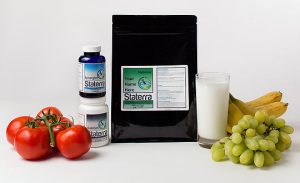First off, let us get this straight. All supplements should do just that: act as a SUPPLEMENT to an individuals existing healthy diet and lifestyle. Supplements are essential in times of stress, illness, to enhance athletic performance or recovery, and to support various imbalances in the body.

The problem that exists, however, is that with such a large industry and so many people currently taking vitamin, mineral, and herbal supplements, there is often a lack of knowledge surrounding WHAT one should be taking, WHY, and HOW MUCH. These three components are essential when considering supplementation, as (like prescription drugs) supplements can be detrimental to your health if taken improperly.
ARE YOU DEFICIENT?
Today’s modern world has caused changes in our soil, lacking minerals that it once did, which in turn has caused whatever it produces (i.e. vegetables, fruit, and other whole food) to be devoid of nutrition or at least significantly lower in minerals than it once was.
On top of that, unless you’re shopping from local farms or growing your own whole foods, your food has most likely been picked weeks before it reaches the grocery store, and then is purchased by you. This entire process can take weeks and cause nutrients to be depleted from the food (never mind the various chemicals that often coat whole foods, used to deter insects and enhance shelf-life).
Here are a few signs and symptoms of the most common vitamin and mineral deficiencies:
Zinc: low immune function (sick quite often), dry skin, brittle hair and nails, white lines in nails, very slow wound healing, hormonal imbalance, past diagnosis or history with H. pylori, sluggish thyroid/possibly subclinical hypothyroidism.
Who may be prone to this deficiency? Athletes who sweat a lot, vegans/vegetarians, those with malabsorption issues, celiac/gluten sensitivity, high stress (both mental and physical), trauma/serious illness and health issues, and overall low nutrient/energy intake.
Iron: dry skin, brittle hair and nails, pale-ish skin and tongue, low immune function, general fatigue/weakness, irregular heartbeat, shortness of breath, headaches, tingling in hands/feet.
Who may be prone to this deficiency? Vegans/vegetarians, poor diet intake (both in quality and quantity), pregnant women, those who have internal bleeding, some illnesses, premature babies.
Magnesium: leg cramps, headaches/migraines, mood swings, loss of appetite, nausea, vomiting, fatigue, numbness, tingling, seizures, personality changes, abnormal heart rhythms, and coronary spasms can occur if severe.
Who may be prone to this deficiency? Athletes, those with poor diets, those not eating mineral rich diets as a whole, alcohol dependency, those with type II diabetes, those with digestive issues/disease, and older individuals.
Vitamin D: low energy, hormonal imbalance, increased risk for serious diseases, associated with higher risk of cancer, cardiovascular disease, osteoarthritis, and autoimmune disorders like multiple sclerosis, type 1 diabetes, depression, and more.
Who may be prone to this deficiency? Those who avoid sun, live in Northern hemispheres, vegans/vegetarians, obese individuals, darker skin tones, and older individuals.
B12: Sluggish energy, lethargy, tingling in feet/hands, Alzheimer’s, dementia, cognitive decline and memory loss, multiple sclerosis (MS) and other neurological disorders, depression, anxiety, bipolar disorder, psychosis, cardiovascular disease, learning or developmental disorders in kids, cancer, infertility.
Who may be prone to this deficiency? Most common amongst vegans and vegetarians who don’t consume animal products or are limited in their diet. B12 is ESSENTIAL and chronic deficiency can result in sometimes irreversible neurological damage.
Now, before you rush out to the store and buy all of these items in supplement form (worried that all of these symptoms apply to you), consult your physician or a certified nutrition professional/dietitian, as you want to make sure you are supplementing properly and that there isn’t a possibility of interactions with the medications you are currently on.
Still have questions about what supplements you should be taking? Contact us!
Resources:
(1): http://annals.org/article.aspx?articleid=1789253
(2): Davis, D.R. (2009) ‘Declining fruit and vegetable nutrient composition: What is the evidence?’, HortScience, 44(1), pp. 15–19
(3): Nasr, S.H., Kashtanova, Y., Levchuk, V. and Markowitz, G.S. (2006) ‘Secondary oxalosis due to excess vitamin C intake’, Kidney International, 70(10), pp. 1672–1672. (4): http://nutritionstripped.com/should-i-take-supplements/
